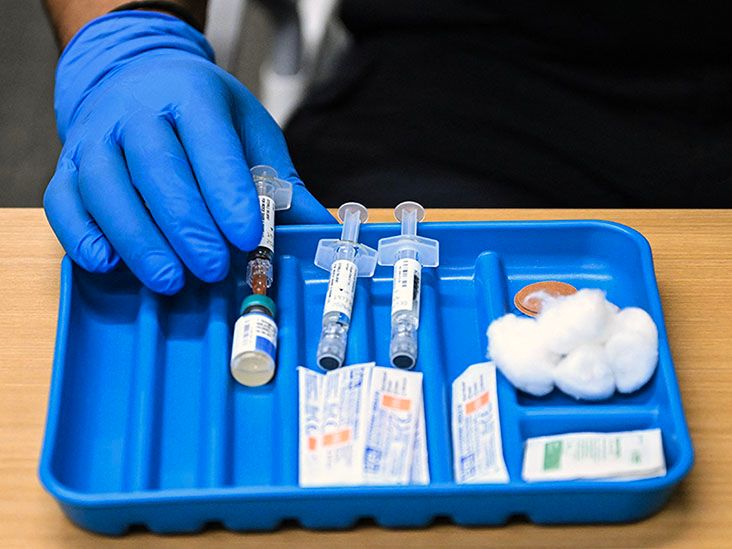Bipolar disorder is a mood disorder that causes extreme mood swings and changes in a person’s behavior. In contrast, obsessive-compulsive disorder (OCD) is a mental health condition that causes repetitive behaviors and intrusive thoughts.
An individual may live with both conditions. Experts estimate that around
This article discusses the link between bipolar and OCD, their treatment, and outlook.

Bipolar disorder is a mental health condition that causes people to experience extreme mood shifts that can affect their daily lives. These alternating mood episodes can range from feeling very happy and energized to utterly sad and hopeless.
Bipolar may include mania or hypomania and episodes of depression. Individuals with bipolar disorder may also have periods of mood stability between these extremes. These can last for months or years, particularly if the person is following a treatment plan.
Experts estimate around
OCD is a mental health condition. It involves unwanted and repeated thoughts, feelings, images, and sensations — or obsessions — and compulsions to perform certain behaviors repeatedly.
These obsessions and compulsions can take various forms. For example, they can include repetitive handwashing and cleaning, hoarding, or performing certain rituals such as turning every light on and off three times.
A person does not feel in control of these obsessive thoughts and urges. As a result, these can be extremely distressing and disruptive to their life.
Around 2% of the population lives with OCD. Usually, symptoms begin during childhood, and it is rare for OCD to begin after 40 years of age.
More than
A 2016 review noted that people with bipolar disorder experience OCD symptoms more often during depressive episodes or intervals between depressive and manic phases.
Some research suggests that if an individual has OCD and bipolar disorder, they are more likely to have a family history of mood disorders than someone with OCD only. However, they are less likely to have a family history of OCD. Other research has found no significant difference in rates in the family history of OCD between people with OCD alone and those with both conditions.
Overall, it seems that there is a biological link between the two conditions. However, as research is limited, it is challenging to draw specific conclusions.
If an individual has
- depressive episodes
- manic episodes
- rapid mood changes
- obsessions and compulsions
- uncontrollable thoughts
- changes in sleep patterns
- social problems
Although there are some similarities between symptoms, there are also distinct differences between them. For example, episodes of mania occur in bipolar disorder but not with OCD.
Mania describes a period of increased energy or agitation, and the person is atypically upbeat or unusually talkative. During these episodes, they may have a decreased need for sleep and an extreme inability to focus. They may also engage in impulsive behaviors that may cause harmful effects. People experiencing mania may also show symptoms of psychosis, such as delusions or hallucinations.
Some
Bipolar disorder and OCD can severely affect a person’s quality of life and cause considerable distress. Therefore, it is important to have a proper diagnosis and begin treatment.
When both conditions co-occur, doctors may decide that the priority is to treat bipolar disorder symptoms because of their potentially harmful nature.
Treatment for bipolar disorder
People with bipolar disorder have the condition for life, even though individuals can go years between episodes. Therefore, treatment focuses on long-term mood stabilization and should continue even if the person is experiencing no symptoms at that time.
Psychiatrists may use a combination of psychotherapy and medication to treat bipolar disorder.
Medications may
- Anticonvulsants: Antiseizure medication may help control mood changes. Options include sodium valproate injections (Depacon), carbamazepine (Tegretol XR), and gabapentin (Gabarone).
- Antidepressants: Although these medications may help with depression relating to bipolar disorder, they cannot help with mania. Options include serotonin, norepinephrine, and dopamine.
- Antipsychotics: Medications, including prochlorperazine (Compazine) and molindone (Moban), may help psychotic episodes.
- Benzodiazepines: Aprazolam (Xanax), diazepam (Valium), and lorazepam (Ativan) may help ease insomnia and anxiety.
- Lithium: This mood-stabilizing medication is the gold standard for bipolar disorder treatment, as it can reduce the risk of suicide.
Psychotherapies that may help with bipolar disorder include:
- cognitive behavior therapy (CBT)
- interpersonal and social rhythm therapy
- family-focused therapy
Treatment for OCD
Doctors frequently prescribe selective serotonin reuptake inhibitors (SSRIs) as a first-line treatment for people with OCD. This antidepressant increases serotonin levels in the brain.
However, doctors are cautious when prescribing SSRIs if the individual also has bipolar disorder, as it can
Therefore, doctors may suggest other combinations of antidepressants, mood stabilizers, anticonvulsants, or antipsychotics.
- fluoxetine (Prozac)
- fluvoxamine
- paroxetine (Paxil, Pexeva)
- sertraline (Zoloft)
Therapies, including CBT and exposure and response prevention, are the mainstay of OCD treatments.
Most people with bipolar disorder or OCD can live relatively symptom-free lives with treatment. However, both conditions are chronic and may require lifelong management.
It is important to note that people with co-occurring bipolar disorder and OCD have a
Help is out there
If you or someone you know is in crisis and considering suicide or self-harm, please seek support:
- Call or text the 988 Lifeline at 988 or chat at 988lifeline.org. Caring counselors are available to listen and provide free and confidential support 24/7.
- Text HOME to the Crisis Text Line at 741741 to connect with a volunteer crisis counselor for free and confidential support 24/7.
- Not in the United States? Find a helpline in your country with Befrienders Worldwide.
- Call 911 or your local emergency services number if you feel safe to do so.
If you’re calling on behalf of someone else, stay with them until help arrives. You may remove weapons or substances that can cause harm if you can do so safely.
If you’re not in the same household, stay on the phone with them until help arrives.
Bipolar disorder and OCD are two mental health conditions that can severely affect a person’s quality of life.
Doctors can prescribe medications and therapies for both conditions to help people cope with their symptoms. Treatment may focus on bipolar disorder when both conditions co-occur due to its potentially severe nature. However, both conditions are chronic and may require lifelong management.
People with co-occurring bipolar disorder and OCD have a higher risk of suicide than those with either condition alone. Therefore, anyone experiencing mental distress should seek professional help and support.


